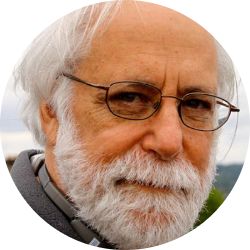This workshop is intended for researchers and doctoral students in economics who are interested in resource and environmental economics. The webinar is led by a team of researchers composed of Geir B. Asheim (Oslo University), Hassan Benchekroun (McGill University), Sophie Bernard (Polytechnique Montréal), Etienne Billette de Villemeur (Université de Lille, UQAM), Robert Cairns (McGill University), Justin Leroux (HEC Montréal), and Charles Séguin (UQAM).
This workshop on natural resource and environmental economics will host Stephen Salant, Professor at University of Michigan, et Gerard Van der Meijden, Professor at Vrije Universiteit Amsterdam.
→ This event will be in English.
- Stephen Salant (University of Michigan)
The Dynamics of Evasion: The Price Cap on Russian Oil Exports and the Amassing of the Shadow Fleet
Abstract
To reduce funds for Russia’s Ukraine invasion, Western governments imposed a price ceiling on Russian seaborne oil exports using Western services. To sell above that ceiling, Russia developed a “shadow fleet” which uses no such services. We use a calibrated model driven by this fleet’s expansion to assess various sanctions. While all sanctions reduce the present value of Russia’s profits, we find that the tighter the ceiling and the tighter the enforcement, the less harm sanctions impose, contradicting conventional wisdom based on Hotelling lemma. However, policies to reduce the shadow fleet’s size may increase the sanction’s effectiveness.
- Gerard Van der Meijden (Vrije Universiteit Amsterdam)
Mining Critical Minerals for the Energy Transition: Trade, Market Power and Policy
Co-authored with Carolyn Fischer (World Bank, Free University Amsterdam, CESifo) and Antonia Kurz (DIW Berlin, Free University Amsterdam, Tinbergen Institute)
Abstract
Green technologies—such as solar panels, wind turbines, and batteries—are heavily reliant on mineral inputs like cobalt, lithium, and nickel, for which supplies are geographically concentrated. This paper analyses how market power in critical minerals and strategic interactions between regions affect the energy transition. It develops and parameterizes a two-region analytical model of a resource-rich region (East) and a resource-scarce, energy-consuming region (West). Both regions mine and trade minerals, as well as the green capital required to replace fossil fuels in energy production. Results demonstrate how East’s market power over critical minerals slows down the energy transition, increases cumulative carbon emissions in West, and lowers West’s welfare. East’s market power significantly changes the speed and order of extraction of different mineral reserves. When West commits to a carbon budget, East benefits due to higher profits from mineral mining and green capital production. Following unilateral strategies, West gains from taxing imported green capital goods, and then East finds it optimal to tax mineral exports. West can also reap strategic benefits from a moderate subsidy on the recycling of minerals. Collective welfare would be highest without trade interventions, even under cartel-fringe competition.






